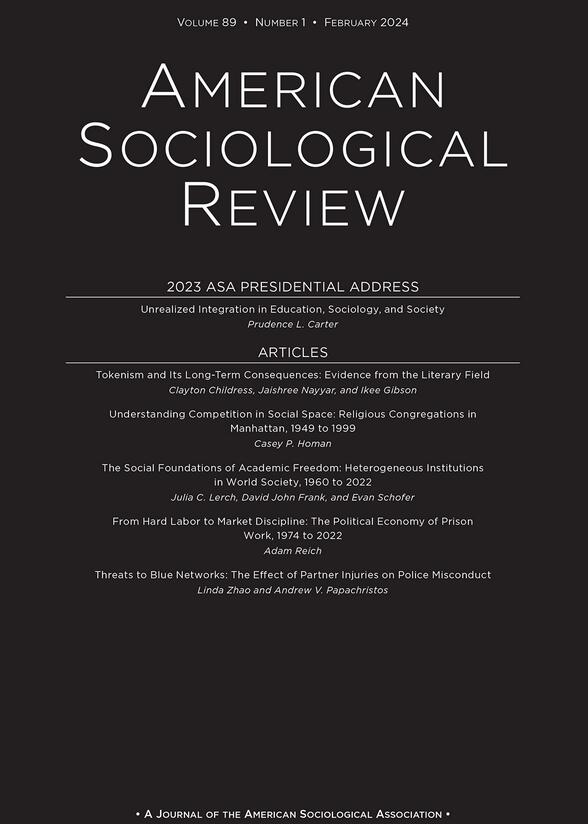广义慷慨:广义互惠规范如何桥接社会交换的集体形式
IF 7.1
1区 社会学
Q1 SOCIOLOGY
引用次数: 17
摘要
这项研究考察了没有直接回报的小规模捐赠行为或广义捐赠行为的潜力,以建立社会纽带并促进对群体的贡献。社会交换理论家将这种行为定义为广义交换。相对于其他形式的交换,广义交换建立强大社会纽带的潜力是理论争论的主题。在这篇文章中,我建立在两个著名的社会交换理论——情感理论和互惠理论——的基础上,提出广义互惠的强规范可以将广义交换的连接利益与生产性交换的连接效益联系起来,生产性交换是一种涉及共享汇集资源的社会交换的合作形式。我认为,广义互惠的强大规范将激活理论上的机制,在广义和生产性的交换系统中建立强大的社会纽带,并将促进对群体的额外行为投资。我用一个受控的实验室实验来检验我的论点,发现了对所提出的因果模型的有力支持。这项研究的结果对慷慨、集体行动、合作、社区意识和社会资本的研究具有启示意义。本文章由计算机程序翻译,如有差异,请以英文原文为准。
Generalized Generosity: How the Norm of Generalized Reciprocity Bridges Collective Forms of Social Exchange
This study examines the potential for small-scale acts of giving that are not directly reciprocated, or generalized generosities, to build social bonds and promote contributions to the group. Social exchange theorists define such acts as generalized exchange. The potential for generalized exchange to build strong social bonds relative to other forms of exchange is the subject of theoretical debate. In this article, I build on two prominent theories of social exchange—affect theory and the theory of reciprocity—to propose that a strong norm of generalized reciprocity may bridge the connective benefits of generalized exchange with the connective benefits of productive exchange, which is a collaborative form of social exchange that involves sharing pooled resources. I argue that a strong norm of generalized reciprocity will activate mechanisms theorized to build strong social bonds in generalized and productive exchange systems, and will promote additional behavioral investments into the group. I test my argument with a controlled laboratory experiment, finding strong support for the proposed causal model. The results of this study have implications for research on generosity, collective action, collaboration, sense of community, and social capital.
求助全文
通过发布文献求助,成功后即可免费获取论文全文。
去求助
来源期刊

American Sociological Review
SOCIOLOGY-
CiteScore
13.30
自引率
3.30%
发文量
35
期刊介绍:
The American Sociological Association (ASA) is a non-profit membership association established in 1905. Its mission is to advance sociology as a scientific discipline and profession that serves the public good. ASA is comprised of approximately 12,000 members including faculty members, researchers, practitioners, and students in the field of sociology. Roughly 20% of the members work in government, business, or non-profit organizations.
One of ASA's primary endeavors is the publication and dissemination of important sociological research. To this end, they founded the American Sociological Review (ASR) in 1936. ASR is the flagship journal of the association and publishes original works that are of general interest and contribute to the advancement of sociology. The journal seeks to publish new theoretical developments, research results that enhance our understanding of fundamental social processes, and significant methodological innovations. ASR welcomes submissions from all areas of sociology, placing an emphasis on exceptional quality.
Aside from ASR, ASA also publishes 14 professional journals and magazines. Additionally, they organize an annual meeting that attracts over 6,000 participants. ASA's membership consists of scholars, professionals, and students dedicated to the study and application of sociology in various domains of society.
 求助内容:
求助内容: 应助结果提醒方式:
应助结果提醒方式:


